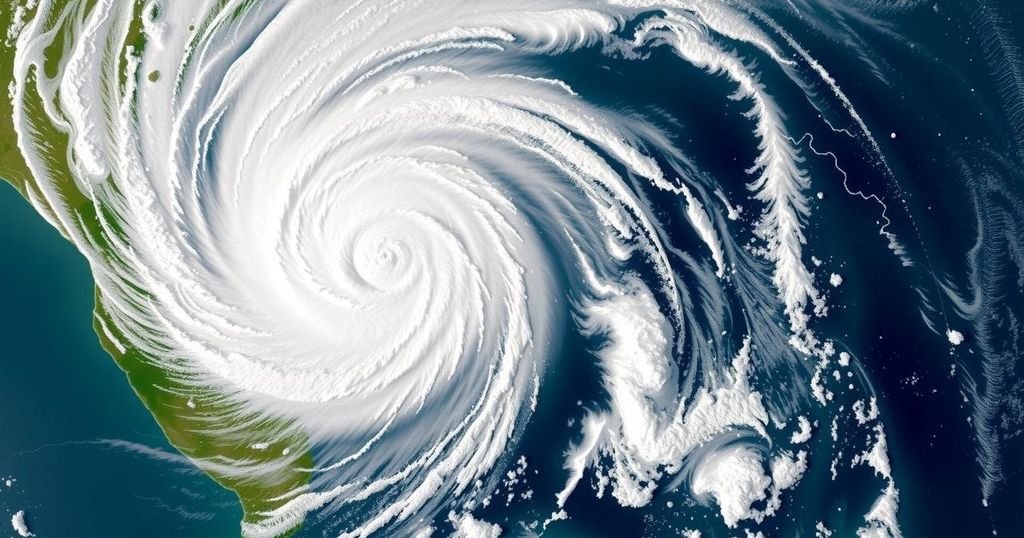Tropical Cyclone Chido Causes Widespread Damage in Southern Africa

Tropical Cyclone Chido has caused widespread devastation in Mozambique, with winds up to 80 km/h and over 250 mm of rain. More than 5,800 houses have been destroyed, impacting thousands of families. It has also affected southern Malawi and threatens to re-enter Mozambique before dissipating near Zimbabwe.
Tropical Cyclone Chido made landfall in Mozambique on December 15, unleashing fierce winds of up to 80 km/h, heavy rainfall exceeding 250 mm in just 24 hours, and causing significant destruction. The Southern African Development Community (SADC) reported that over 5,800 houses were destroyed, 41 classrooms suffered partial damage, and power infrastructure was severely impacted, affecting approximately 2,500 families. The assessment of damages continues, with estimates expected to rise as recovery efforts are underway.
Reports from Pemba indicate extremely strong winds and ongoing power outages, complicating communication in the region. Residents are forced to conserve battery life for essential communications as mobile connectivity remains unreliable due to the lack of electricity. Before its impact on Mozambique, Cyclone Chido devastated neighborhoods in Mayotte, where it struck as a Category 4 cyclone, with sustained winds over 220 km/h.
As of December 16, Chido is moving inland, impacting southern Malawi with continued high winds and rain accumulation ranging from 100 to 150 mm. The cyclone is anticipated to re-enter northern Mozambique, specifically in Tete Province and near Sofala and Manica provinces, before dissipating near Zimbabwe by December 17. Authorities urge residents to stay informed through their national meteorological services, highlighting the importance of monitoring weather forecasts as the situation evolves.
Tropical Cyclone Chido represents a significant meteorological event impacting Southern Africa, particularly Mozambique, Malawi, and surrounding regions. Tropical cyclones in this part of the world are caused by a combination of warm ocean waters and atmospheric conditions that contribute to intense storm development. The landslide effects can lead to humanitarian crises due to displacement, damage to infrastructure, and challenges in disaster response. Cyclone Chido’s trajectory has raised alarms, especially following its prior impact on Mayotte, necessitating ongoing vigilance in affected areas.
Tropical Cyclone Chido has wrought havoc across Southern Africa, especially in Mozambique, with extensive damage to housing and infrastructure. The ongoing threat extends into Malawi, and further monitoring is critical as the cyclone continues inland. The challenges posed by severe weather highlight the need for effective disaster preparedness and response strategies to protect vulnerable populations in the path of such natural disasters.
Original Source: www.vaticannews.va







